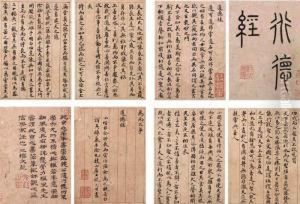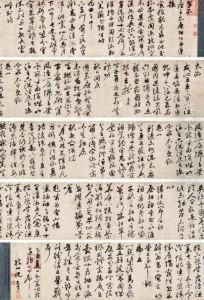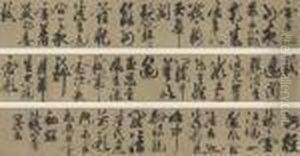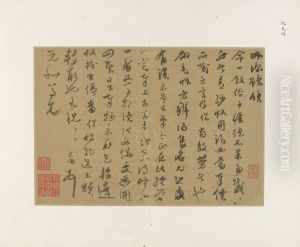Zhu Yunming Paintings
Zhu Yunming, born in 1460 in Wuxi, Jiangsu Province, was a prominent figure during the Ming Dynasty in China. Not only was he an acclaimed calligrapher, but also a respected poet, scholar, and official. Zhu Yunming's contributions to Chinese literature and calligraphy were significant, marking him as a leading intellectual of his time.
Zhu's early life was dedicated to the pursuit of knowledge and mastery of the arts. He passed the imperial examination at a young age, which led to various positions within the government. However, his career was not without its ups and downs, as Zhu often found himself at odds with the political climate of the time. His integrity and refusal to compromise his principles led to periods of disfavor with the ruling elite, which, in turn, allowed him more time to focus on his artistic and scholarly pursuits.
As a calligrapher, Zhu Yunming was known for his innovation and mastery of the 'running script.' His works were highly sought after and praised for their energy and expressive quality. He was also an accomplished poet, with his poetry being celebrated for its depth and philosophical insight. Zhu's scholarly work included extensive writings on history, literature, and philosophy, reflecting his wide-ranging interests and profound knowledge.
Zhu Yunming's influence extended beyond his lifetime, with his works continuing to be studied and admired for centuries. He was seen as a model scholar-official, embodying the ideals of moral integrity, intellectual curiosity, and artistic excellence. His legacy is evident in the ongoing appreciation of his calligraphy and poetry, which remain integral to the study of Ming Dynasty art and literature.



![Treatise On [education ? ] In Small Standard Scriptcalligraphy](https://www.niceartgallery.com/imgs/1126175/s/zhu-yunming-treatise-on-education-in-small-standard-scriptcalligraphy-e16f96ad.jpg)








